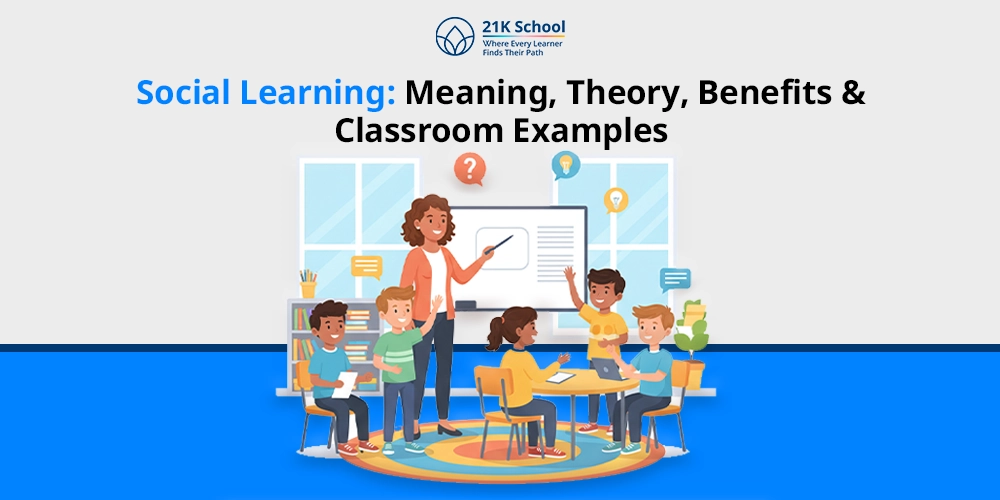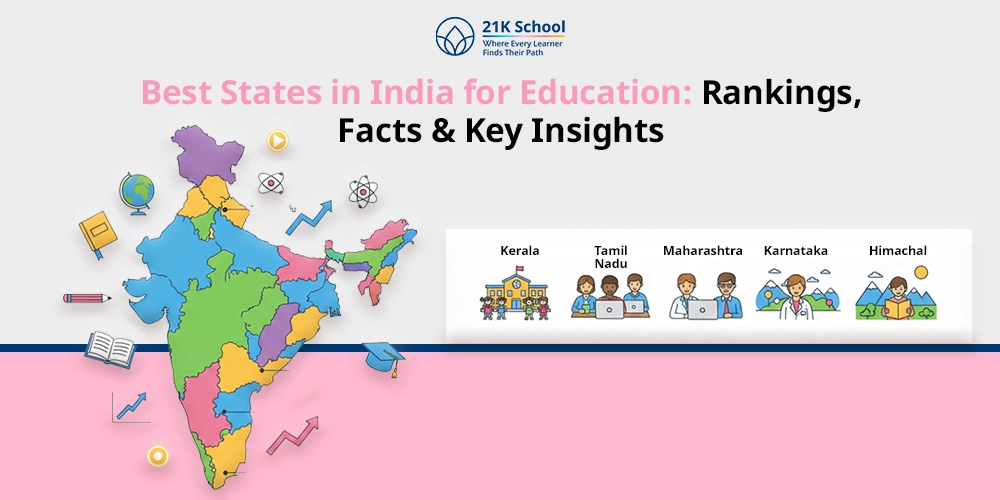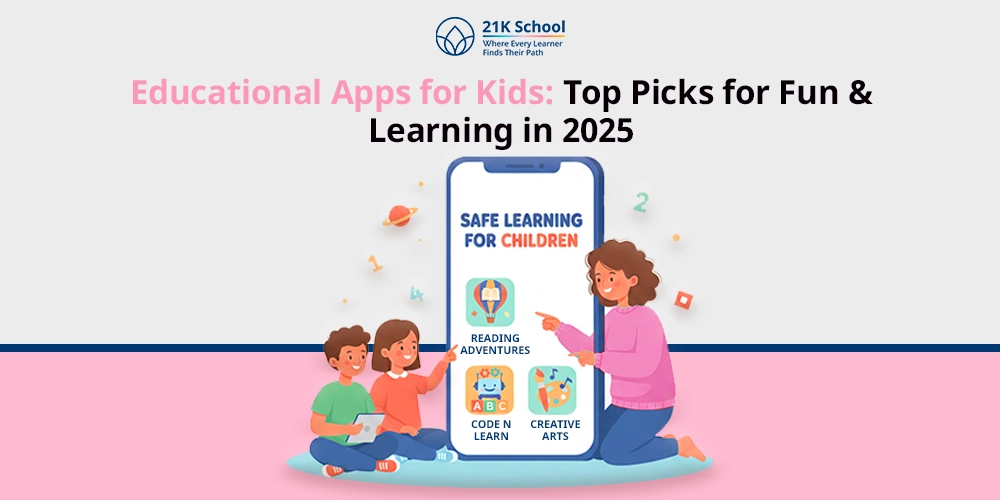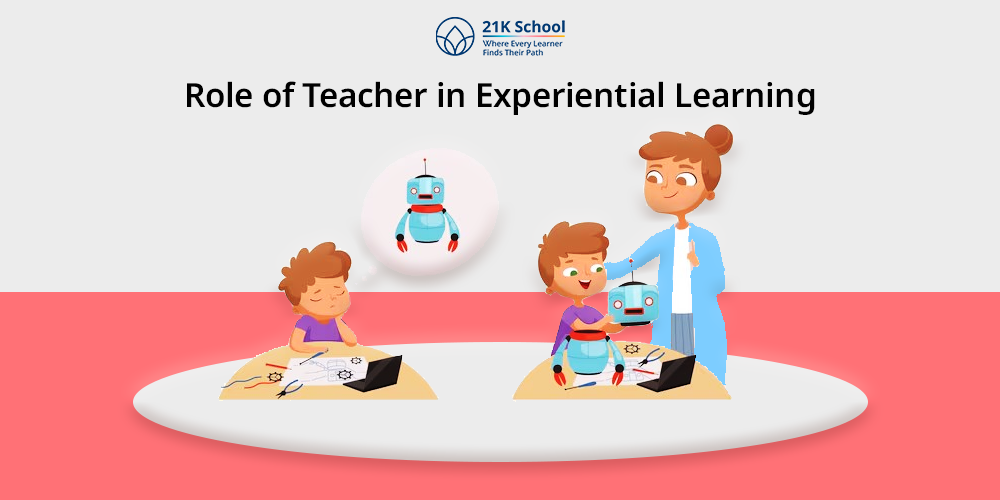
Recall an incident when you actually learned something that you will take with you forever. Did it happen in a lecture? Or was it during a real-life problem, collaborating on a project or a form of a hands-on activity?
Most of us recollect experiences the moment we constructed something, went to another place or resolved a challenge together. This is the strength of experiential learning . It does not imply passive learning of facts but active interaction with ideas, people, and environment.
The role of the teacher in this situation becomes completely different. The teacher stops being a deliverer of knowledge, replacing him or herself with a mentor, a facilitator, and a co-learner.
But how does that translate in the classroom or lab or community? Now, it is high time we discussed this changing and crucial role of teachers in learning through experience.
Table of Contents
- What is Experiential Learning?
- Top 10 Roles of Teacher in Experiential Learning
- 1. Teacher as a Guide, Not Instructor
- 2. Learning Experience Designer
- 3. Reflection Enabler
- 4. Connection between Theories and Practice
- 5. Advocate of Learning Styles
- 6. Co-Inquirer and Lifelong Learner
- 7. Assessor and Evaluator
- 8. Academic Research Stimulator
- 9. Admission in Schools and Programmes
- 10. Critical and Creative Thinkers Developers
- Conclusion: Stage of Sage to Guide
What is Experiential Learning?
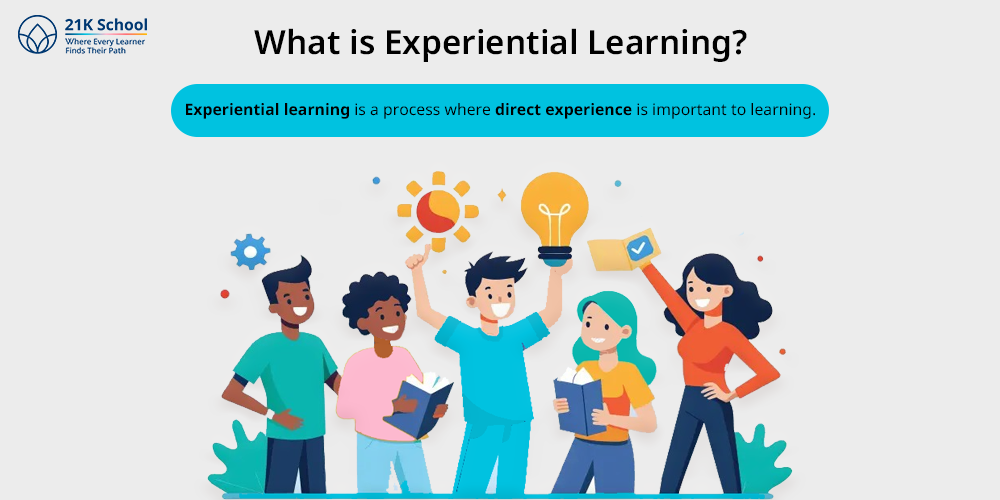
Before proceeding on the role of the teacher, it is necessary to know what experiential learning is about.
Experiential learning is a process where direct experience is important to learning. It is based on the theories of other educated theorists such as John Dewey, Jean Piaget and David Kolb, and it is cyclic:
- Concrete Experience: The learner gets practical experience.
- Reflective Observation: The learner captures the experience into consideration.
- Abstract Conceptualization: The learner makes conclusions and theories.
- Active Experimentation: The learner applies these concepts to novel situations.
This cycle makes learners become individuals in charge of their education. It leads to more profound knowledge, critical thinking, and practical application.
Top 10 Roles of Teacher in Experiential Learning
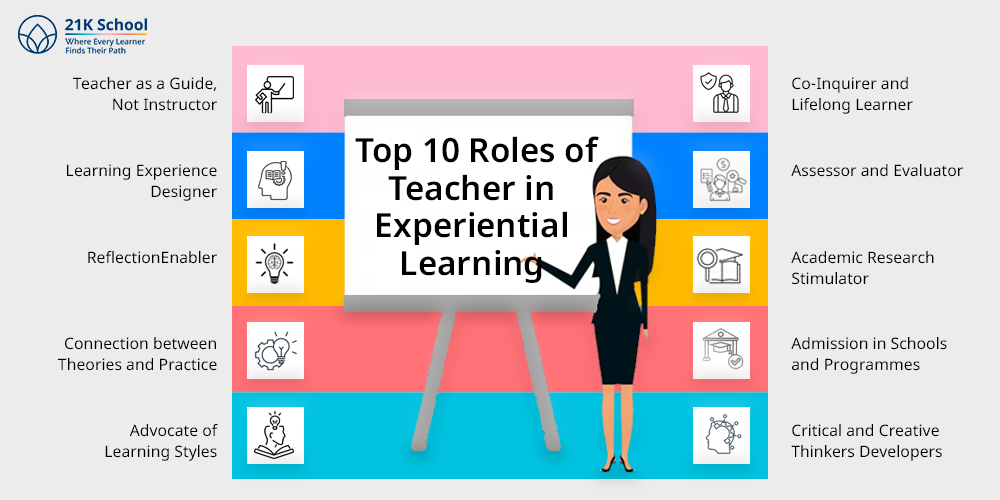
The role of teachers is completely different in providing experiential learning, from what we have seen in traditional schooling . It comes out more as a guide, a facilitator, and a mentor, than an instructor.
Let’s dive deeper to uncover the detailed participation of teachers in experiential learning:
1. Teacher as a Guide, Not Instructor
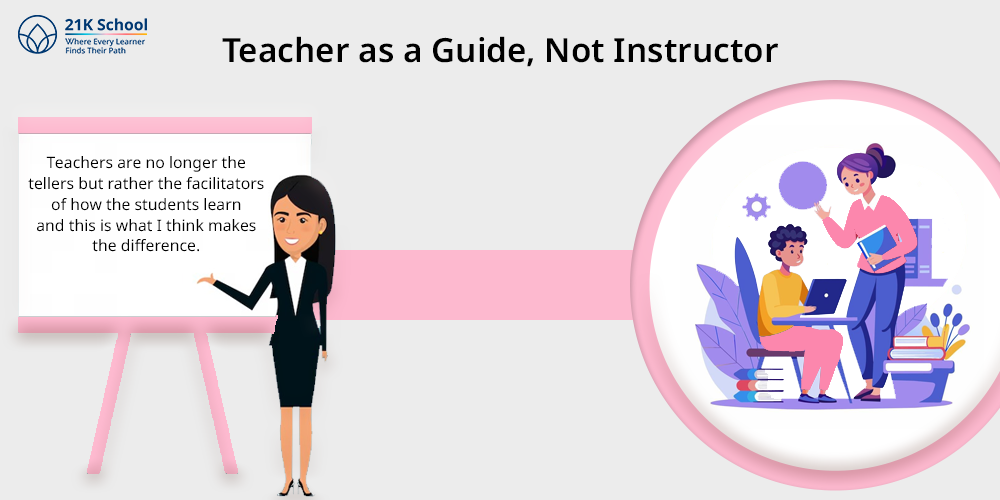
In conventional schooling, the teacher is usually the hub of the classroom, the main source of information or the authority. That is not the highlight in experiential learning.
Teachers are no longer the tellers but rather the facilitators of how the students learn and this is what I think makes the difference. That is creating purposeful experiences, asking questions that cannot be Googled, and helping students figure out things on their own.
In this role, teachers have to:
- Make sure that a safe learning environment is created in which students are invited to take risks.
- Be a good listener and give constructive criticism.
- Encourage individual and collective thinking which is also vital to the learning process.
Instead of providing answers, the teacher enables children to seek solutions, develop independence and curiosity.
2. Learning Experience Designer
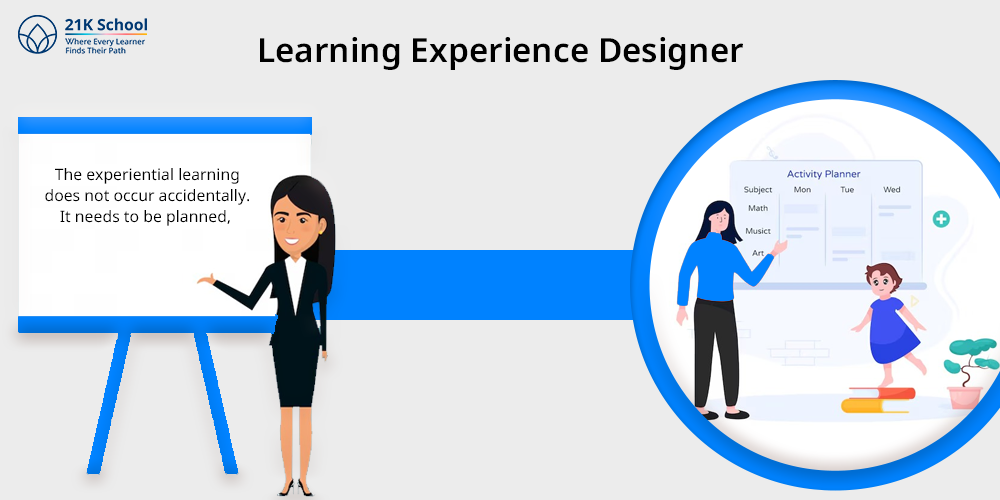
The experiential learning does not occur accidentally. It needs to be planned, and here is one of the most innovative and most important functions of the teacher as an instruction designer.
A teacher would have to:
- Create real-life tasks that would simulate real life scenarios.
- Combine interdisciplinary knowledge, relating theory into practice.
- Introduce tools and resources, electronic or physical, in order to promote exploration.
An example used by a science teacher may be a simulation of students who should be environmental scientists examining pollution. The teacher of history may arrange a role-play during which the students will argue as historical characters.
The good or bad quality of experiential learning depends highly on the relevance of these experiences that the teacher creates willingly.
3. Reflection Enabler
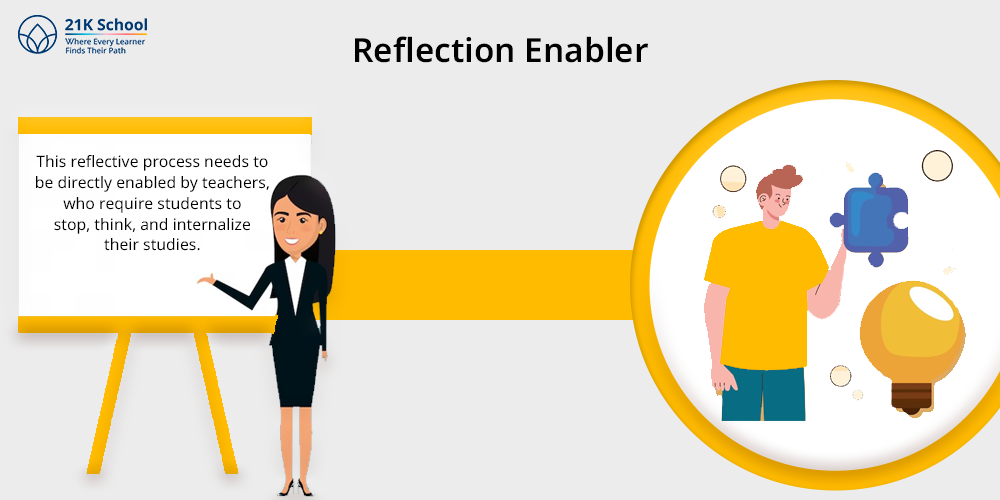
The magic of the experiential learning occurs at reflection. It converts action to knowledge. This reflective process needs to be directly enabled by teachers, who require students to stop, think, and internalize their studies.
This may be achieved by means of:
- Directed journals or learning diaries
- The classes focused on analyzing experience through discussion
- Hand-to-hand debriefing sessions
- Group discussions concerning successes and challenges
The role of a teacher is to pose the correct questions like:
- What did you see?
- What do you think caused it?
- In what ways can you use this elsewhere?
The thoughts are not only literary. They promote emotional intelligence, moral decision-making and lifelong learning .
4. Connection between Theories and Practice
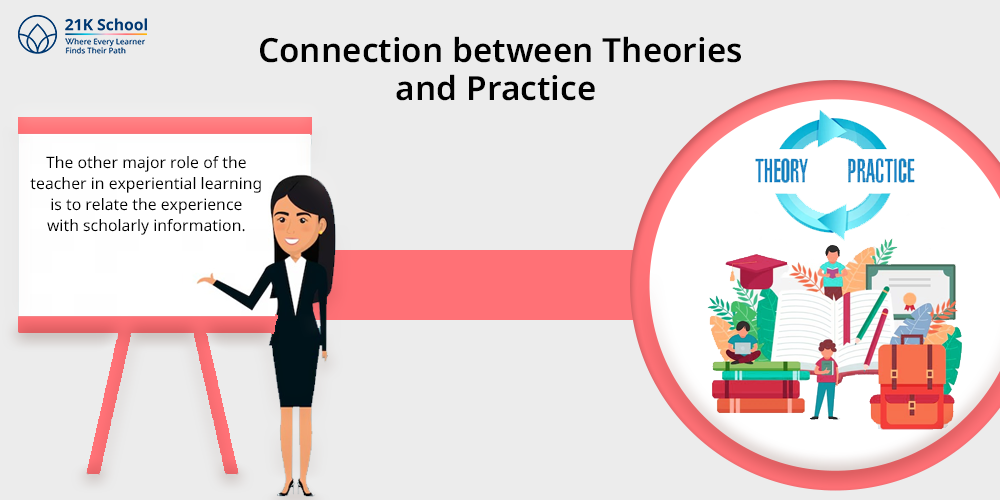
The other major role of the teacher in experiential learning is to relate the experience with scholarly information. Learners can be empowering, but unless instructed, they might find it difficult to make connections to objectives and educational theories.
In this case, the teacher is a bridge-builder, and she understands student connections of the following kinds:
- Action and theory
- Individual knowledge and study perspectives
- The real-life and global concerns
As an example, a teacher who runs a service-learning exercise at a local shelter. He could connect the pupils’ remarks with a sociological analysis of poverty or even a debate related to public policy.
Using experiences in their lives, teachers enhance the understanding of students and allow them to construct meaningful knowledge.
5. Advocate of Learning Styles
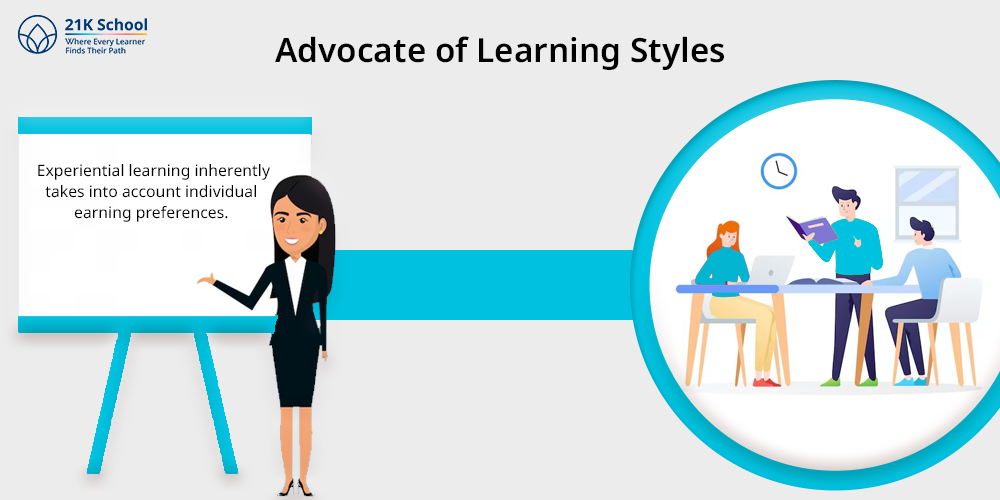
Experiential learning inherently takes into account individual learning preferences. Yet still teachers must recognize diversity, inability, background, culture, and learning pace as well.
The instructor will have to:
- Choose differentiated instruction which provides a variety of entrances to learning.
- Be inclusive to make sure everyone can be heard in a group.
- Differentiate lessons to accommodate different students with diverse needs or requirements.
A flexible and understanding teacher will keep the experiential education fair and open to every student.
6. Co-Inquirer and Lifelong Learner
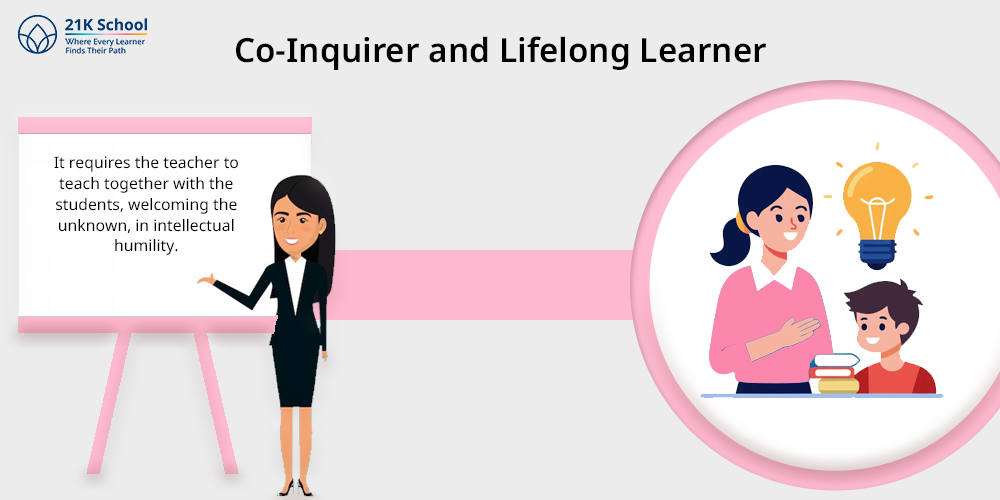
The distinction between a teacher and a student may become blurred, in an experiential scenario. It requires the teacher to teach together with the students, welcoming the unknown, in intellectual humility.
By saying, “I don,t know, but let us discover together”, the teacher:
- Express an open mind with flexibility
- Inquiry based learning model
- The culture of partnership should be promoted.
This position needs being vulnerable and open, aspects that are not necessarily linked with traditional teaching. However, in experiential learning, teachers are essential for developing trust and respect.
7. Assessor and Evaluator
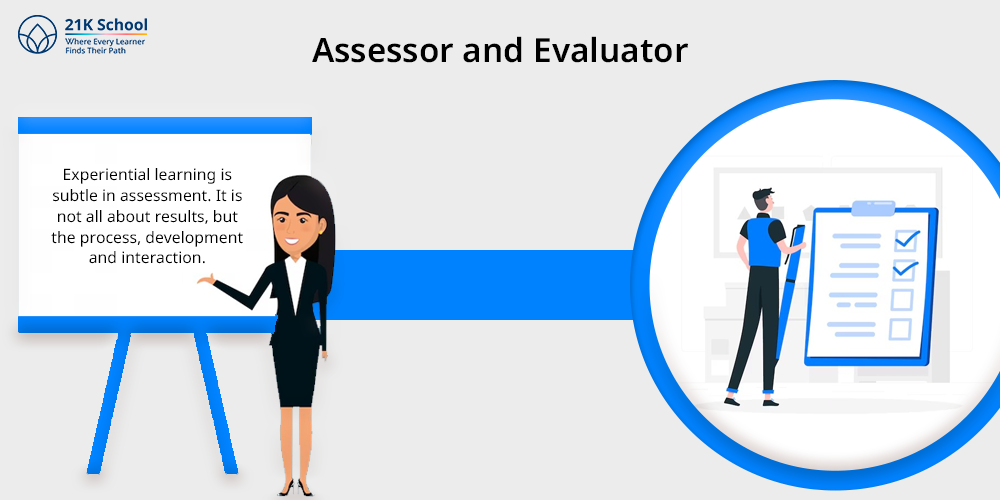
Experiential learning is subtle in assessment. It is not all about results, but the process, development and interaction.
Alternative assessment forms have to be used by teachers, including:
- Student work and reflection portfolios
- Tasks such as presentations or prototypes based on performance
- Self and peer evaluation
- A narrative feedback instead of grades
The role of a teacher, in this case, should be to give constant formative feedback. So that learners understand where and how they stand. It is about moving forward and not being perfect.
8. Academic Research Stimulator
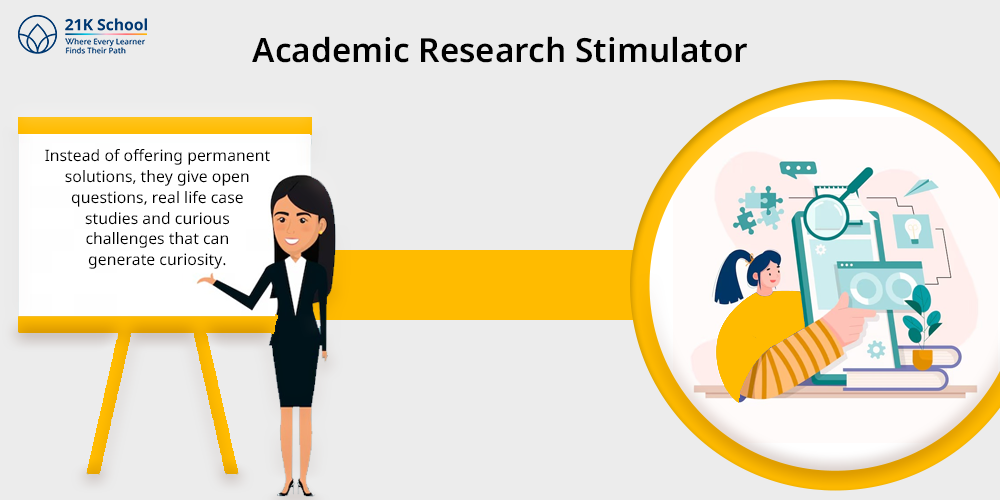
In experiential learning, teachers are more of an invigorator of questioning/ exploration and research rather than the acquisition of information. Instead of offering permanent solutions, they give open questions, real life case studies and curious challenges that can generate curiosity.
Go through these activities to encourage curiosity in children .
Through this proactive method of teaching, the students are motivated to:
- Collaborate in mini-research procedures.
- Field recordings.
- Learn by trial and errors.
- Assess many sides of the case and make decisions.
Teachers can cultivate academic research attitudes and mindsets in young students. Mostly, by offering activities that involve analysis, comparing, synthesis and interpretation of subjects too early in the students academic years.
9. Admission in Schools and Programmes
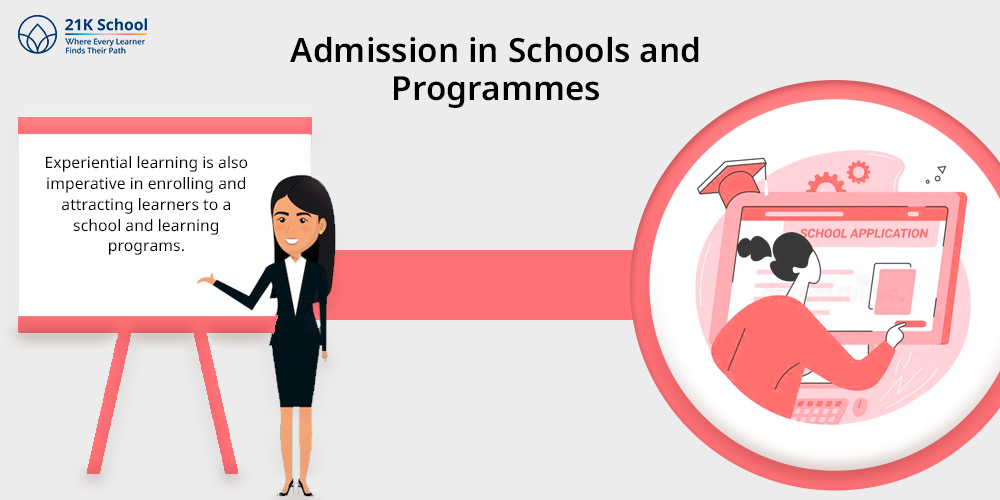
Experiential learning is also imperative in enrolling and attracting learners to a school and learning programs. Students are more likely to achieve success when they are exposed to a fun learning environment.
Especially the ones that prioritizes hands-on experience, real-world applicability and student engagement.
- Have a sense of ownership to their education.
- Remain in the school and make regular attendance.
- Refer any learners to the school or program.
Teachers also play a great role in this aspect. Their capacity to create learning experiences, collaboration and create a safe environment of exploration, makes learning enjoyable and enthralling.
The type of teaching is particularly necessary in alternative education environments, technical and vocational courses. Or even schools with low dropout rates and a lack of motivation.
10. Critical and Creative Thinkers Developers
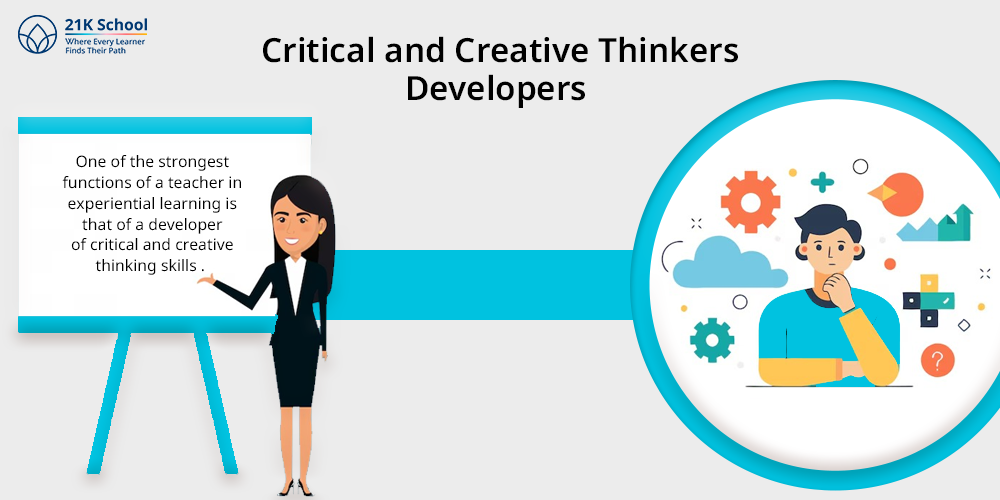
One of the strongest functions of a teacher in experiential learning is that of a developer of critical and creative thinking skills . Experiential tasks may lack one correct answer and it is the responsibility of the learners to:
- Examine issues in various perspectives.
- Come up with innovative solutions.
- Independent and team thinking.
- Decide and analyze the consequences.
This is made available by teachers through:
- Divergent thinking.
- Encouraging questions and discussion.
- Giving positive feedback that generates more thinking.
They guide metacognition as educators, or students thinking about thinking, and so inquire into the best ways students learn best. This preconditions the generation of learners not only well-informed, but innovative in using knowledge.
Conclusion: Stage of Sage to Guide
Teachers are no more merely imparting vessels of knowledge. They have become experience building, reflection guiding, theory and practice bridging, traveling companions in the process of discovering knowledge.
Today, inquisitiveness, constructing significant experiences, facilitating reflection and practice has become their novel tools. They are creating lasting learning not only in the mind but in the heart and by the hands.
And surprisingly you would witness a teacher using group work in a community-based project, a debate, or a design problem. Mind that it is experiential learning in action. And suppose that teacher? They are engaging in one of the most vibrant and influential roles in education today.

